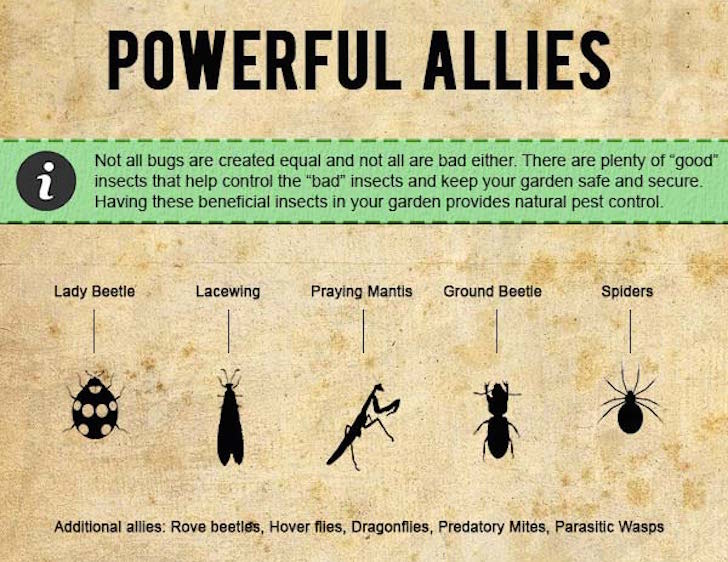Your cart is currently empty!

Late Spring Pest Prevention: Natural Ways to Keep Bugs Bay
Natural Spring Pest Control: Keep Aphids, Slugs, and Garden Pests Away Without Chemicals
1. Companion Planting: A Natural Pest Deterrent
One of the easiest and most natural ways to protect your garden from pests is companion planting. Certain plants can naturally repel insects or attract beneficial bugs that help control pests. Here are some popular pairings:
- Marigolds: Their strong scent repels aphids, nematodes, and other pests.
- Basil and Tomatoes: Basil can help repel mosquitoes and flies, and it’s thought to enhance the growth of tomatoes while keeping some pests at bay.
- Nasturtiums: These flowers can attract aphids, keeping them away from your more valuable crops.
- Lavender: Known to deter mosquitoes, flies, and moths, lavender adds beauty to your garden while protecting your plants.

By planting these companion plants near your vegetables or herbs, you can naturally repel many pests without using chemicals.
2. Neem Oil: A Natural Pest Killer
Neem oil is a powerful, natural insecticide derived from the neem tree. It works as a repellent, disrupts the life cycle of insects, and can even kill pests on contact. Neem oil is effective against a wide range of pests, including aphids, whiteflies, and spider mites.
To use neem oil, simply dilute it with water according to the instructions on the bottle and spray it on your plants. It’s safe for most plants and won’t harm beneficial insects like bees if used properly (ideally during early morning or late evening when bees are less active). Click here for the link for the Neem oil I use.
3. Diatomaceous Earth: A Safe and Effective Barrier
Diatomaceous earth (DE) is a fine powder made from the fossilized remains of tiny aquatic organisms called diatoms. It’s incredibly effective at controlling pests like slugs, snails, and other soft-bodied insects.
When pests come into contact with DE, it scratches their exoskeletons, causing them to dehydrate and die. It’s safe for humans, pets, and beneficial insects, but it can be harmful to pollinators if inhaled, so be sure to apply it carefully. Sprinkle a light dusting around your plants or on the soil to create a barrier. If you can’t find any natural DE in your area here is a link to buy some on Amazon.
4. Garlic and Hot Pepper Spray: Homemade Bug Repellent
Garlic and hot peppers are both natural insect deterrents. By making a simple homemade spray, you can keep many pests away from your garden. Here’s a quick recipe:
- 1 bulb of garlic
- 1 tablespoon of cayenne pepper or chili powder
- 1 quart of water
- A few drops of dish soap (optional, to help it stick)
Blend the garlic and pepper with water, strain the mixture, and add a few drops of dish soap to help it adhere to plants. Spray it directly on your plants, focusing on the undersides of leaves where pests like to hide. The strong smell will keep insects away without harming your crops.
5. Encourage Beneficial Insects
Not all bugs are bad! In fact, many insects are beneficial to your garden. Ladybugs, lacewings, and predatory beetles feast on aphids and other garden pests. To attract these helpful critters to your garden, try planting flowers like:
- Cosmos
- Fennel
- Dill
- Yarrow
These plants not only attract beneficial insects but also add beauty and diversity to your garden. Another tip: avoid using broad-spectrum pesticides that can harm these helpful insects.
6. Handpicking and Traps: Simple but Effective
Sometimes the best solution is the simplest one. If you notice slugs, caterpillars, or beetles on your plants, remove them by hand. This might seem time-consuming, but it’s an effective way to keep pest numbers under control. You can also use traps, such as beer traps for slugs, or sticky traps for flying insects like aphids and whiteflies.
7. Mulching to Prevent Pests
Mulch does more than just keep weeds at bay—it can also help prevent pests. A thick layer of mulch around your plants acts as a barrier, making it harder for slugs, snails, and other crawling pests to reach your plants. It also helps retain moisture in the soil, which is particularly useful during dry spells.
When choosing mulch, opt for organic materials like straw, wood chips, or grass clippings. These mulches break down over time, enriching the soil while preventing pest problems.
8. Encourage Healthy Soil for Stronger Plants
Healthy plants are more resistant to pests. By focusing on building strong, nutrient-rich soil, you’ll be helping your plants naturally fend off pests. Composting, using organic fertilizers, and rotating crops are all great ways to ensure your plants stay strong and healthy.
Incorporating organic matter into your soil will also promote a thriving ecosystem of beneficial microbes that help combat pests naturally.
Conclusion: A Healthy Garden Without Chemicals
Late spring is the perfect time to begin pest prevention in your garden, and you don’t need harmful chemicals to keep bugs in check. By using natural methods like companion planting, neem oil, and diatomaceous earth, you can protect your crops while supporting the health of the environment. These strategies not only help prevent pests but also encourage biodiversity, improve soil health, and foster a thriving homestead.
Stay vigilant, and happy gardening!
